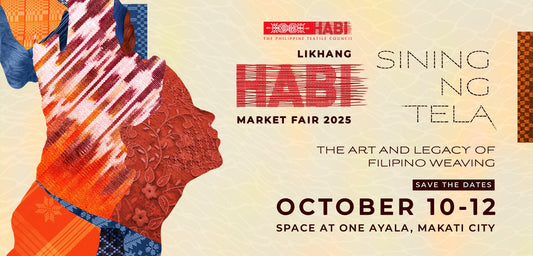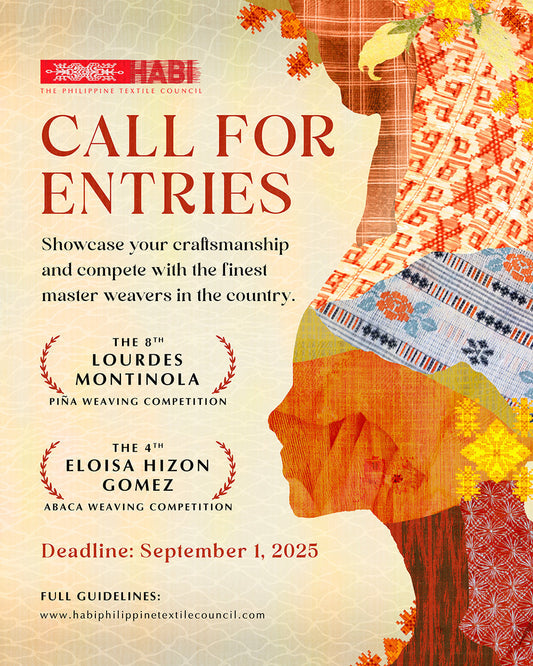HABI: The Philippine Textile Council, together with Nooks Manufacturing International Corp. conducted a workshop on the hand-spinning of cotton on February 1 to 7 in Oton, Iloilo, to teach and encourage women to take up the craft. Ten women were chosen to participate in the workshop, with some of their children joining on the weekend for a fun-filled experience on spinning and dyeing. The participants, some of whom would trek every day from the next town of Miagao, were brought together by Girlie Flores, a jewel of an organizer whose passion is empowering women in the textile crafts.
The workshop was held in the training facility of the Oton Local Government Unit (LGU), where the participants worked in air-conditioned comfort and had meals catered throughout the whole course. The module facilitator was Emi Daniel of Nooks Manufacturing, an advocate of reviving the Philippine cotton industry.
For the seven-day workshop, HABI flew in simple tools, raw cotton, and several spinning wheels made of beautiful mahogany wood. The dyes and chemicals, because the airlines would not carry them, were shipped via courier. As there were not enough spinning wheels for all the participants, the group was split into two so that at least five could try their hand at spinning, while the others were taught the art and chemistry of dyeing cotton, after which they switched places.
An enthusiastic lot, the women were quick to learn both spinning and dying. By the end of the workshop, they were producing very fine thread, a skill which requires much patience and long practice. Some of them had also been able to spin several ounces of cotton as a result of the very thoughtfully designed program.
Emi Daniel had devised the course using implements that are easily available in the hardware stores of Oton, allowing the women to be able to make their own spinning wheels and other tools in the future. The carding and cleaning process, probably the most tedious part of making cotton thread, was done using steel brushes sold in pet shops to groom dogs. However, according to Emi, the process can be speeded up and mechanized if mats of the steel brush are ordered and made into revolving drums, which are used to prepare the cotton for spinning.
Nooks Manufacturing had offered to buy any and all the thread produced by the women, but it appears that weavers in Iloilo will have some use for hand-spun cotton.
The workshop’s module on dying included formulas for bleaching the cotton prior to tinting and recipes to achieve certain colors. Young girls who had come with their mothers came up with tie-dyed T-shirts, which were sold at the end of the workshop. The same young girls also learned to card and assisted their mothers in spinning.
On February 8, Maribel Ongpin and I flew to Iloilo for the graduation ceremonies. We were quite pleased by the results we witnessed. The mayor of Oton (from the Flores political dynasty) came to the training center, very keen on the workshop. A proponent of organic agriculture, he promised to designate idle LGU lands for planting cotton. The Department of Tourism and the Fiber Industry Development Agency (FIDA ) sent their representatives as well. We learned that a senior officer of FIDA in Oton is a cotton expert and about to retire.
One of the reasons Iloilo was chosen as the site of this spinning module is because one of the towns in the province—Leon—is known to grow cotton. It is hoped that farmers in the area will be encouraged to plant cotton again, if a demand for the crop arises. This time, the cotton was brought from Ilocos Norte.
This spinning workshop can be easily replicated in other parts of the country where cotton can be grown and where there is a (moribund) handweaving tradition. Weaving using locally grown cotton would level up the textiles produced in the country.




